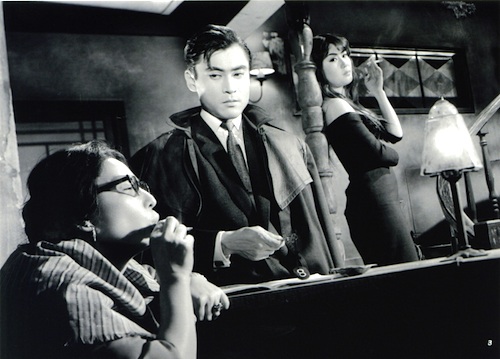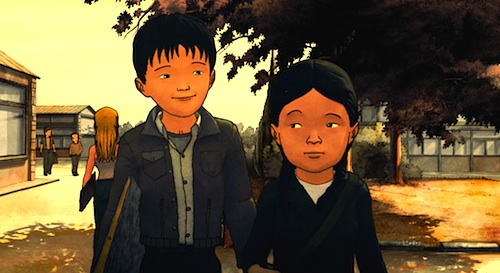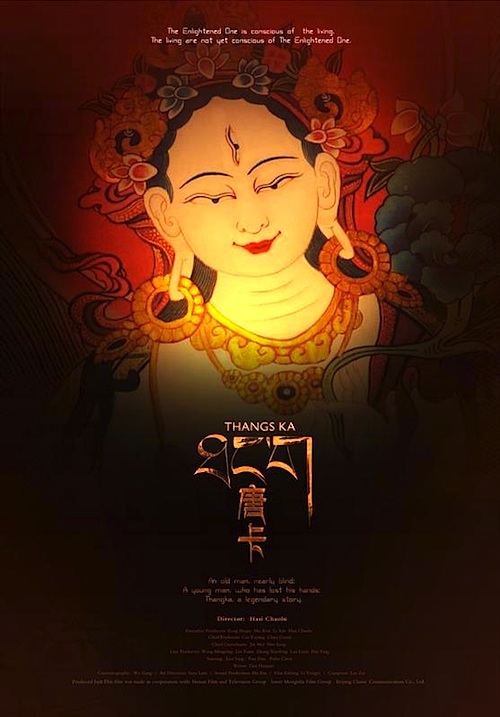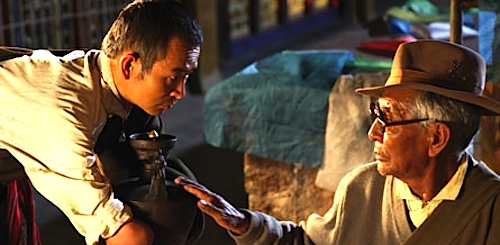By Joe Bendel. Gen. Bonner Fellers was a principled anti-Communist with a deep affinity for Japanese culture. He sounds like our kind of guy. Known as Gen. MacArthur’s protégé, he was no favorite of Eisenhower’s. Yet, it was the former who assigned him a nearly impossible task. In just ten days, Fellers must determine Emperor Hirohito’s culpability in Japanese war crimes and recommend whether he should be executed or retain his position as formal head of state. Just what did the Emperor know and when did he know it are the driving questions of Peter Webber’s Emperor, which opens this Friday in New York.
As a college student, Fellers really did visit Japan several times. In Webber’s film, he is pursuing Aya Shimada, a shy but admirably progressive Japanese woman, who was forced to withdraw from Fellers’ small Midwestern college when tensions between their countries escalated. While in Japan, he writes his thesis on the psychology of the Japanese military, particularly with regard to their loyalty to the emperor, so he is relatively prepared for his military investigation. However, while he chases down former government and military officials for MacArthur’s inquiry, Fellers also searches just as doggedly for traces of Shimada.
Of course, Shimada’s storyline is a fictional construct. We can only imagine what Gen. MacArthur would have thought of a senior staff officer dividing his efforts between a time-sensitive assignment and personal business. On the other hand, it gave Webber an excuse to cast Eriko Hatsune in a prominent role. Although not especially famous in Japan (an assumption confirmed by a Japanese colleague at the press screening), Hatsune generated international notice for her brief but devastating supporting turn Tran Anh Hung’s Norwegian Wood, which she has now parlayed into a co-starring role in a major English language production. Would you jeopardize re-igniting the bloodiest war in human history to find her again? Sure, probably.

Indeed, Hatsune is exquisitely sensitive and rather soulful as Shimada, developing some surprisingly appealing romantic chemistry with Matthew Fox’s Fellers. While Fox hardly ages a gray whisker in his transformation from Earlham undergrad to one-star general, he projects an intelligent presence and a reasonably credible military bearing. At least he does not look out of place in the uniform.
While Tommy Lee Jones (who as you might have heard, did not win an Oscar for Lincoln) sounds perfect for MacArthur, he might just be too perfect. It is all very cool early on when he tells his men “let’s show them some old fashioned American swagger.” However, we have seen this sort of act from Jones before. Frankly, the strutting about, and telling down-home one-liners with his corncob pipe clenched in his teeth gets pretty shticky over time.
If Emperor does any business to speak of, you should anticipate the Fellers blowback to start with a vengeance. He was definitely a right-winger, but his vision of a free and democratic Japan counterbalancing the Soviets’ influence in Asia has essentially been vindicated by history. Likewise, his judgment on Hirohito (which historically literate viewers should expect whether or not they are familiar with Fellers) has proved entirely justified. Expect much to be made of his time as the U.S. military attaché in Egypt before the war, during which the code for his sensitive reports back to Washington had been cracked by the Germans. Although everyone concedes Fellers was blameless in the affair, there is no denying the awkwardness of it. There is another ultra-PC complaint decrying Fellers as yet another white savior figure. Of course, this ignores the reality of Japan’s unconditional surrender and the pressures from Washington to swing Hirohito from a rope.
Emperor presents the challenges of peace in a rather thoughtful manner. Frustratingly, for reasons of presumed convenience, screenwriters Vera Blasi and David Klass let claims of moral equivalency go unchallenged. Yes, America was in the Philippines long before the war, but what happened in Nanjing is an entirely different matter altogether. Watching Emperor one would conclude nothing of the sort had happened under the watch of Hirhito and Tōjō, which does an enormous disservice to history, ultimately cheapening the film. Decidedly mixed, Emperor earns moderate credit for telling the unacknowledged story of Fellers and nicely showcasing a future international star like Hatsune. It opens this Friday (3/8) in New York at the AMC Village 7 and the Brooklyn Heights Cinema.
LFM GRADE: C+/B-
Posted on March 4th, 2013 at 3:13pm.



